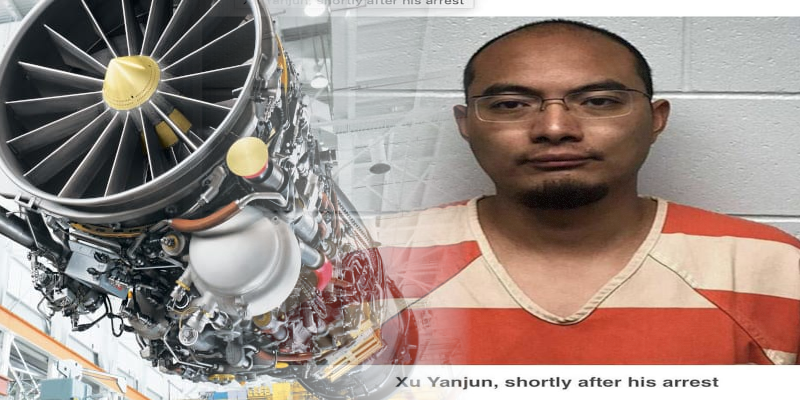Dharamshala, 8th November: According to swarajyamag.com, Yanjun Xu, a top Chinese intelligence official, was convicted of conspiring to and attempting to commit economic espionage and theft of trade secrets by a federal jury in the United States on Friday (November 5). Yanjun Xu was the first Chinese spy to be extradited to the United States.
Xu was found guilty of two counts of conspiring and attempting to commit economic espionage, each of which carries a maximum statutory punishment of 15 years in jail and a $5 million fine. Xu was also found guilty of conspiring to steal trade secrets and two counts of attempting to steal trade secrets, each of which carries a potential statutory term of ten years in prison and a $250,000 fine. After considering the US Sentencing Guidelines and other statutory criteria, a federal district court judge will impose any sentence.
Yanjun Xu was arrested and accused in October of allegedly attempting to steal trade secrets from GE Aviation and other US aerospace businesses. He also goes by the identities, Qu Hui and Zhang Hui. Xu was the deputy head of the Chinese intelligence agency, the Ministry of State Security (MSS). With the help of Belgian officials, he was extradited to the United States and put on trial.
Xu was accused of attempting to steal confidential knowledge about the composite materials used in GE’s fan blades and encasement. These specialty materials are more durable, lighter in weight, and less expensive. The composites are an important part of the Leap engine developed by CFM, a joint venture between GE Aviation and Snecma Moteurs of France based in West Chester. The Airbus A320 Neo, Boeing 737 Max, and China Comac C919 are all powered by this engine.
Xu employed a variety of aliases to target organizations in the aviation industry in the United States and abroad. He chose company expertise and persuaded them to come to China, frequently under the premise of giving a talk at a university. Xu and others provided stipends to the specialists in addition to covering their travel expenses.
A GE Aviation employee in Cincinnati, Ohio, was asked to submit a report at a Chinese university in March 2017. Two months later, the employee came to China to give a presentation at the university, where he met Xu. Xu and others covered the employee’s travel costs and provided a stipend.
Xu requested “system specification, design process” information from the employee in January 2018, and the employee emailed a two-page document from the company, which included a label warning about the disclosure of proprietary information, with the company’s cooperation, which was working with the FBI.
Xu began discussing the prospect of meeting in Europe during one of the employee’s business visits in February 2018 and asked the employee to transmit a copy of his company-issued computer’s file directory. On April 1, 2018, Xu traveled to Belgium to meet with the employee and was arrested.
Information gathered from swarajyamag.com







Leave a Reply